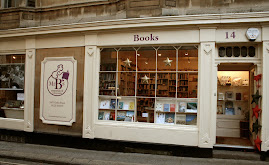No. 15. “The Best of Everything” by Rona Jaffe (Penguin Books, 2011)

With a cast resembling the Sex and the City girls (maybe a little less racy) and a set-up that mirrors that of the recent hit series Mad-Men this is a novel that reads like the TV mash-up of your dreams (or maybe just my dreams).
The characters are well-developed and equally interesting to read about, I naively found the women’s attitude to work in the 1950's (as a stop-gap on the route to marriage) rather shocking! Even Caroline, the most driven of the women is willing to abandon her career dreams in the face of an eligible man. The writing is super-light, but if you’re looking for a girly flavoured holiday read then this is your boy (irony intended)!
No.16. Jubilate by Michael Arditti (Arcadia Books, 2011)

I followed my light and girly read with something altogether more serious and literary. “Jubilate” is the story of the relationship that forms between a BBC producer and a Catholic woman on a pilgrimage in Lourdes.
Gillian is a woman overburdened with responsibility; her husband has suffered a brain haemorrhage and is hugely dependent on Gillian’s care. With some coercion from her mother in law, Gillian joins the annual pilgrimage to pray for a miracle cure for Richard. But her dedication to the cause is disrupted by the attention of Vincent, a sceptic when it comes to Catholicism, who has been assigned the task of making a documentary about the pilgrimage.
The affair unfolds in a series of chapters which shift between Gillian and Vincent’s narration and jump backwards in forwards in time over the week of the pilgrimage. The effect is a beautiful and complex layering structure, which sees some episodes reported from the different perspectives of the couple and others more sparsely described.
I was really impressed by this book, it’s thought-provoking and romantic but it achieves these accolades without losing sight of the serious issues at the heart of the narrative.
No.17. “The Break” by Pietro Grossi (Pushkin Press, 2011)

The B Team (minus Ed) flocked to read the first novel (translated into English) by our favourite Italian author of the moment. Having told myself I would only have time to read half of the novel before Grossi rocked up to talk Reformation at the Mr B’s Book Lovers Unite event, I ended up reading the whole thing in one sitting.
Grossi’s style is understated, stripped back prose which I found incredibly effective and at very times moving. I particularly enjoyed the descriptions of the intuitive nature of stone-laying, a mechanical process which involves a surprising amount of instinct.
I loved, loved, loved this book!
No.18. “All the Stars Electric Bright” by Ian Breckon (Old Street Publishing, 2011)

Atmospheric and tautly written, this novel blends giants of Italian Fascism, Mussolini and F.T. Marinetti (initiator of the Futurist movement), with a cracking selection of fictional success-hungry artists, dancers and other creative types.
The narrative unfolds at a glamorous Futurist themed dinner party, hosted by Marinetti. Amongst the guests are aspiring artists and friends Emilio and Arturo who must compete for a prestigious commission and for the affections of Nina, the woman that they both love.
As cocktails and revolutionary cuisine are guzzled the claustrophobic mood of the party intensifies and the frustrated guests begin to reveal their true dramatic selves. A really exciting novel that simmers with tension, art, politics and pretentious food.

No.19 “The Shipping News” by Annie Proulx (Fourth Estate, 1994)
I can’t believe I have only just got round to reading “The Shipping News”, it is without a doubt the best book that I have read in ages! Annie Proulx’s writing is simply outstanding, her descriptions of people and places are so impressive, funny and vibrant, in particular a comparison of a character’s face to “clawed cottage cheese” sticks in my mind!
Quoyle is an overweight, hopeless journalist who returns to his ancestor’s run down house on an isolated area of coast in Newfoundland, along with his aunt and his daughters Bunny and Sunshine. He quickly secures a job at the local newspaper, where he is responsible for reporting on the shipping news (even though he knows nothing about boats) and car wrecks (which evoke painful personal memories).
If you’re a person who looks for great characters in a novel (and I certainly am) then this is a book that’s sure to impress, each character is so brilliantly and originally drawn. I'm adding Annie Proulx to my favourite authors list now.


